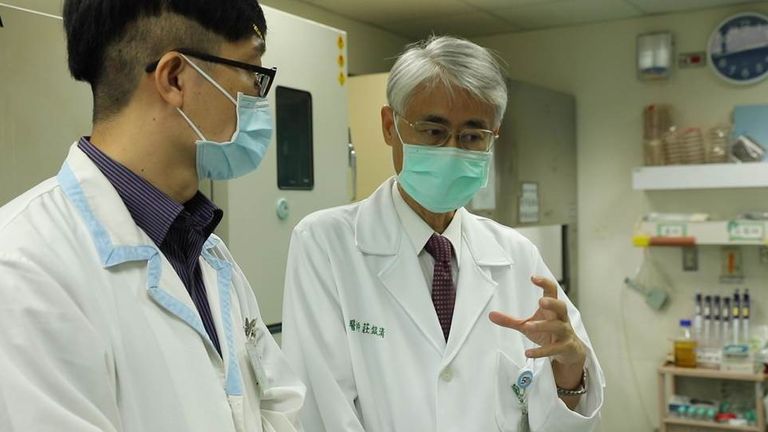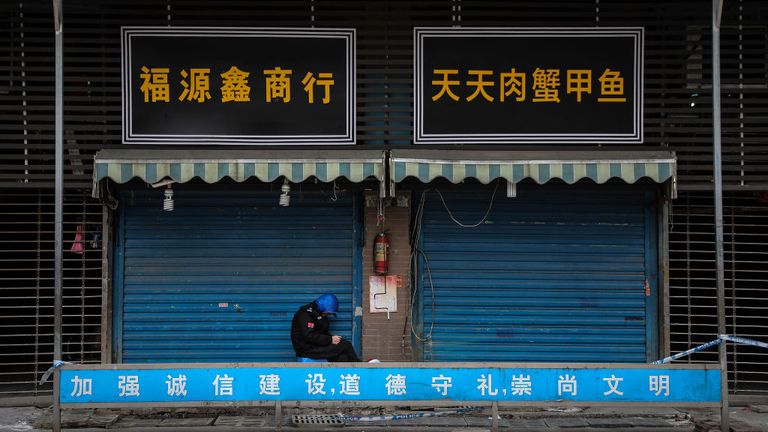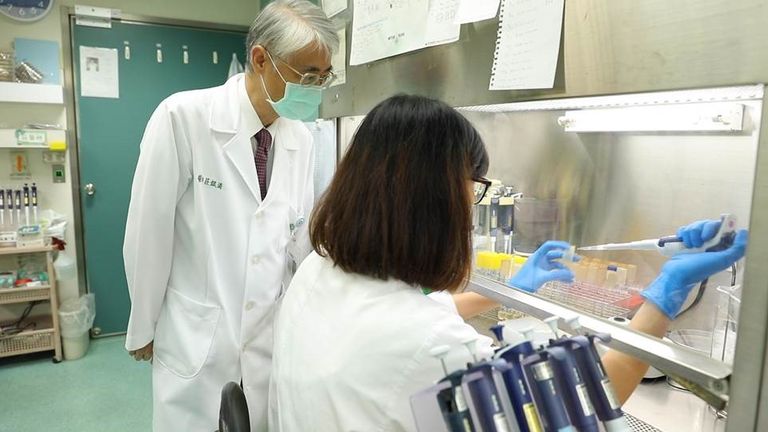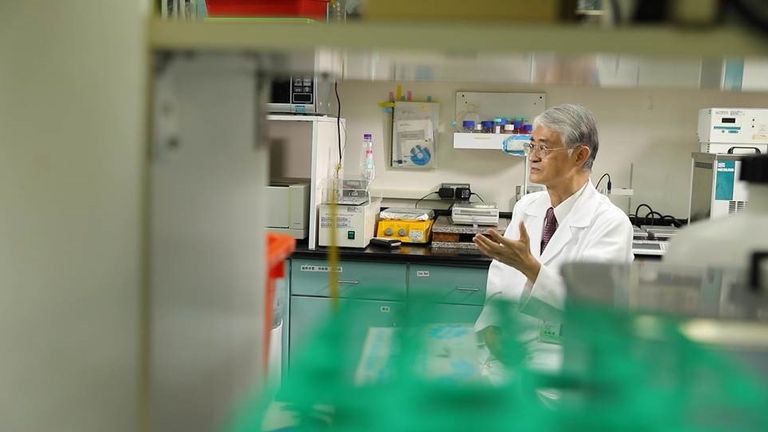“We were very cautious about that,” he told Sky News.
“Because Taiwan is so close to China. It’s very important to prevent it, rather than treating it.”
When he arrived on the ground in Wuhan in mid-January and spoke to Chinese officials, worry turned into alarm.
“I think, yeah, something is wrong,” Prof Chuang said.
“The first thing is maybe they are not well prepared, maybe they are too busy or they want to hide [information]. They just don’t want to present all the information to us.”
Prof Chuang is regional commander for Taiwan’s Infectious Disease Prevention and Treatment Network, established after the SARS outbreak of 2003 – an outbreak Prof Chuang dealt with first-hand.
As a result of his fact-finding trip, Taiwan introduced strict border controls and quarantines.
During the whole pandemic, the country has recorded just seven coronavirus deaths for a population of nearly 24 million.
Prof Chuang was initially reluctant to visit Wuhan. He and his wife were moving house.
“I also worried about the possibility I might carry some viruses and transmit to my wife.”
When the director general of Taiwan’s CDC called him directly, though, he agreed, understanding what was at stake.
“The first step for us to control this unknown epidemic, a very important thing was to know the detail of the outbreak at the first time,” Prof Chuang told Sky News.
“And second, I wanted to know the transmission route. Because the transmission route is very important for us to do the prevention.”
The most pressing question for Prof Chuang was the issue of human-to-human transmission.
At the time, China and the World Health Organisation (WHO) were both saying there was no evidence of this. Prof Chuang was sceptical of that.
From 13 to 15 January, his group, which also included scientists from Hong Kong and Macau, visited laboratories and hospitals, which were running “dirty” and “clean” zones – a sign of fears over human transmission.
Then, in a meeting, a Chinese official admitted that there were two family clusters based around the Huanan seafood market, initially thought to be the origin of COVID-19.
One patient’s wife had been infected even though she did not visit the market.
“So that’s an indirect, very important clue of human-to-human (H2H) transmission,” Prof Chuang said.
Some junior officials tried to deny there was human-to-human transmission.
“But in my mind that means definitely there is human-to-human transmission. Because they tried to deny the possibility of H2H transmission and then the higher official at the meeting admitted that limited H2H transmission cannot be excluded.
“That means it is a human-to-human transmission disease, no doubt.”
Prof Chuang made that call before probably anyone else.
It was not be until 20 January that both China and WHO announced evidence for limited human-to-human transmission.
Taiwan is not part of WHO.
China sees the country as its own, renegade province and works hard to prevent international organisations recognising the island.
Taiwan, locked out of WHO, didn’t wait for it.
At the airport, Prof Chuang was met by CDC officers and asked his advice on travel regulations.
“I said no we need to upgrade not to downgrade, we need to do more regarding the quarantine, regarding how to prevent people from Wuhan or from China bringing this disease to Taiwan.”
The next day, he and a colleague made their findings public at a press conference.
On 23 January, Wuhan locked down.
It took Prof Chuang by surprise.
“I cannot imagine the speed of the spread, spreading so quickly. Because they don’t provide the scale of the outbreak. I only knew there were 41 cases.”
A year on from the first registered COVID-19 case in China, there is much we still do not know. And there is a long way to go still.
“Right now people try to live their normal life,” Prof Chuang told Sky News.
“But before we have an effective vaccine, before everyone can get the vaccine, you can only live a semi-normal life.
“They should follow the advice to wear a mask, to wash hands more. Every person has the responsibility to protect themselves.”





